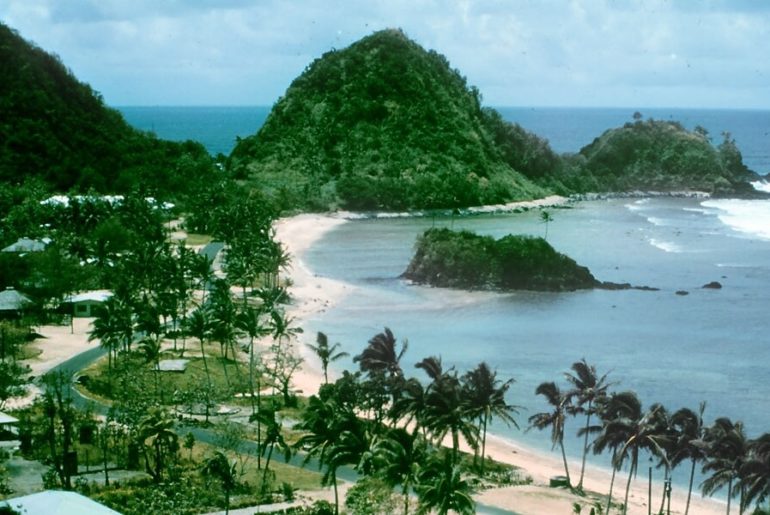U.S. District Court Judge Clark Waddoups in Utah ruled that American Samoans are U.S. citizens by birth as defined by the Fourteenth Amendment, delivering a promising step toward equity for Samoan nationals.
“It doesn’t feel very good when the federal government says you’re American, but not quite the same as other Americans, just a little bit different. Just being able to say they’re real American citizens, I think that goes a long way, in addition to being able to vote,” plaintiff attorney Neil Weare told CNN.
After a D.C. federal court ruled that Samoan nationals are not American citizens in 2016, the U.S. Supreme Court declined to hear the case on appeal, preserving the lower court’s decision. And though the recent decision sets precedent for the judicial effort moving forward, the ruling only applies to American Samoans in Utah for now.
The nation of Samoa is a group of small islands about 2,500 miles south of Hawaii. American Samoa, a smaller portion of the eastern islands, became a U.S. territory in 1900 after a dispute over colonization with Germany. But unlike citizens of other U.S. territories like Puerto Rico, Guam and the Virgin Islands, Samoan nationals don’t have the right to vote and experience difficulty because of workplace citizenship requirements. American Samoan nationals send delegates to the Republican and Democratic National Conventions and elect one non-voting member to the U.S. House of Representatives.
The passport issued to American Samoans currently reads, “The bearer is a United States national and not a United States citizen” But the U.S. Constitution gives no definition for “citizens”.
“There was an implicit assumption that birth within the United States conferred citizenship — the president was to be a ‘natural born citizen’ resident in the United States — but did this encompass all persons born within the states and territories of the new nation, or could the states or federal governments distinguish among natives, accepting some as birthright citizens while rejecting others,” according to author James Kettner, as quoted in the ruling.
In 1857, a key issue arose in the Dred Scott Supreme Court case regarding the relationship between state and federal citizenship. Establishing citizenship for free blacks was an outcome Southerners sought to avoid. But the outbreak of the Civil War threw this into flux. Passage of the Thirteenth Amendment, which abolished slavery and involuntary servitude, laid out a blueprint for the Fourteenth Amendment. After two years of debate, Congress passed the Fourteenth Amendment in 1868.
At the beginning of the 20th century, a series of court decisions, known as the “Insular Cases,” dealt with distinctions between birthright citizenship stemming from U.S. territories destined for statehood like Hawaii and Alaska, and those that weren’t, like Puerto Rico and Samoa. The 2016 D.C. ruling from a panel of conservative judges drew criticism, as it relied heavily on the Insular Case rulings, now viewed as racist holdovers and remnants of colonialism.

